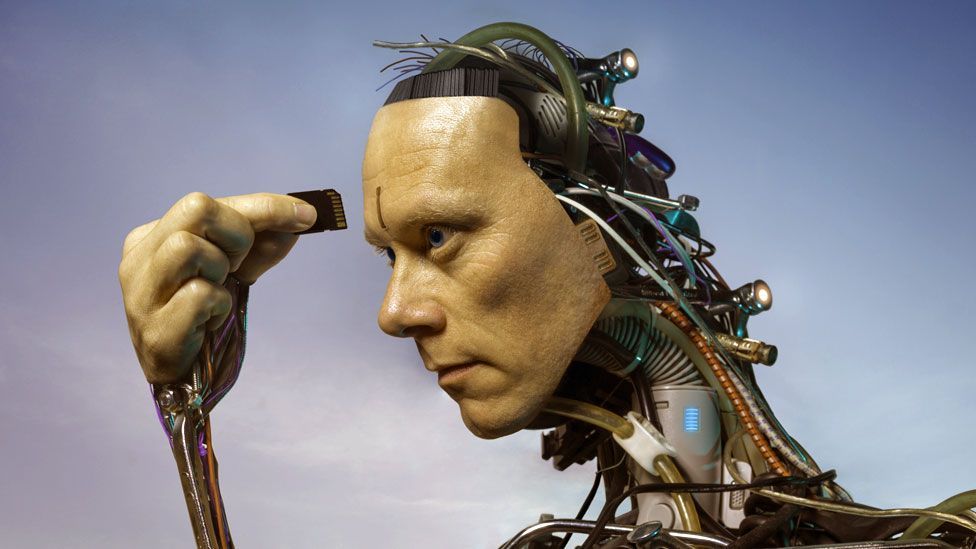The Impact Of Cyborgs On Human Evolution
The integration of technology with humans to create cyborgs has the potential to revolutionize the way we live and work, leading to faster and easier communication, improved health and wellness, and increased productivity. The idea of cyborgs was once relegated to science fiction, but is now becoming increasingly central to discussions about the present and future of technology. As technology continues to advance, humans and machines are becoming more and more intertwined, giving rise to a new era of cyborgs.
Cyborgs are essentially human-machine hybrids, with technology implanted inside the body to enhance or augment human abilities. From smart prosthetics to brain implants capable of controlling robotic limbs, the possibilities are rapidly expanding. While some may be hesitant to embrace these new technologies, the potential benefits are profound.
One significant advantage of cyborgs is the potential to enhance communication. With implantable devices, humans can communicate better and faster with one another. The technology can also enable communication with previously inaccessible environments, providing better data for scientific research. Moreover, implantable devices can enhance human performance and capabilities. For example, an implant designed to assist with memory recall could be an enormous benefit to students and those with certain types of brain injuries.
Another area where cyborg technology has great potential is in medicine and healthcare. Current prosthetics, such as artificial limbs, are simple compared to the advanced technologies being developed today. Cyborg prosthetics use electrical currents and microprocessors to move and function like a real limb, with many technologies already successfully implanted in patients. In some cases, the implantation of a chip in the brain has been shown to help those with paralysis gain some degree of mobility.
Furthermore, cyborg technology may help prevent or treat various conditions. For instance, some devices can be implanted to monitor and regulate glucose levels, potentially helping individuals with diabetes control their blood sugar levels. Similarly, cyborgs can be equipped with nanobots that can detect and destroy cancer cells, enhancing treatment outcomes.
Despite these benefits, there are still questions and anxieties about cyborg technology. One common concern is privacy, given that technology implanted inside the body is able to monitor and collect personal information. Moreover, the world of cyborgs may exacerbate existing inequalities, creating disparities between the haves and have-nots. Some experts also worry about the potential for technology to take over human interactions, leading to less empathy and emotional connection.
Overall, the integration of technology with humans to create cyborgs presents both opportunities and challenges. While the potential for increased productivity, communication, and improved health can bring drastic improvements to society, we must also be cognizant of the risks and implications of integrating technology into our physical beings. In short, the future of cyborgs is both exciting and uncertain, but we must ensure that we approach the new technology thoughtfully and responsibly as we navigate this brave new world
Another important aspect to consider is the user's consent to implant technology in their body. Autonomous decision-making to undergo the modification of traditional human bodies with cyborg technology needs to be evaluated from a legal perspective such as potential conflicts in the workplace.
Overall, the potential for integrating technology with humans to create cyborgs is vast, with benefits ranging from medical applications to increasing productivity and enhancing communication. However, it is vital not to ignore or dismiss the potential risks and disadvantages that such technology may pose. Ultimately, a balanced approach should be taken, considering both the opportunities and challenges that can arise from advancing technologies. Rather than simply accepting new technologies, we must actively seek to evaluate their benefits and better understand their potential risks.
As we navigate this brave new world of cyborgs, it is essential to balance progress with responsibility. There should be transparent communication, regulations, and ethical considerations to ensure that these technologies don't compromise on human values and morals. In particular, policies must ensure that the use of cyborg technology doesn't discriminate against any group of individuals, preventing disadvantaged individuals from becoming left behind in society. However, the evolution of cyborgs could also bring ethical concerns, such as the potential for unequal access to advanced technology, unintended consequences of integrating technology into the human body, or compromising on human values and morals. It is necessary to address any ethical concerns proactively and establish ethical guidelines in the creation and use of cyborg technology. Proper testing and development of the technology are indispensable to ensure that the responsible implementation of these emerging technologies doesn't pose risks to human health and society's well-being. Ultimately, the integration of technology with humans to create cyborgs opens up a world of possibilities, where we can benefit from new technological advances in various fields. It is necessary to continue to explore these emerging technologies in a thoughtful and responsible way to maximize the vast potential of cyborg technology for the good of humanity.
We should embrace the potential of cyborg technology while remaining vigilant about its potential impact on society and our lives to ensure that the benefits of these technologies are shared equally and fairly across society.
The physical and psychological effects of cyborg technology should be differentiated, as well as the identity of individuals, together and society, with the consequences of the changes in mind. It is important to address these issues proactively to ensure that the creation and use of cyborg technology do not alter the basic essence of what it means to be human.


No comments: